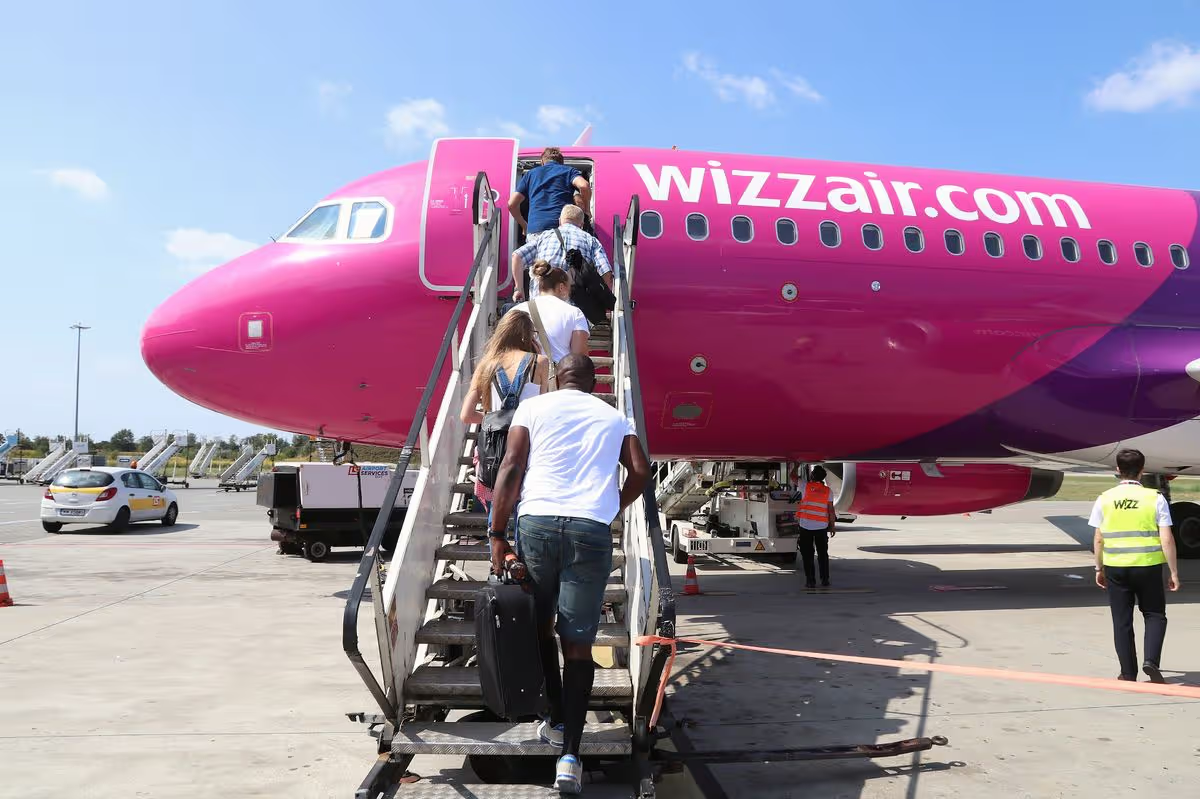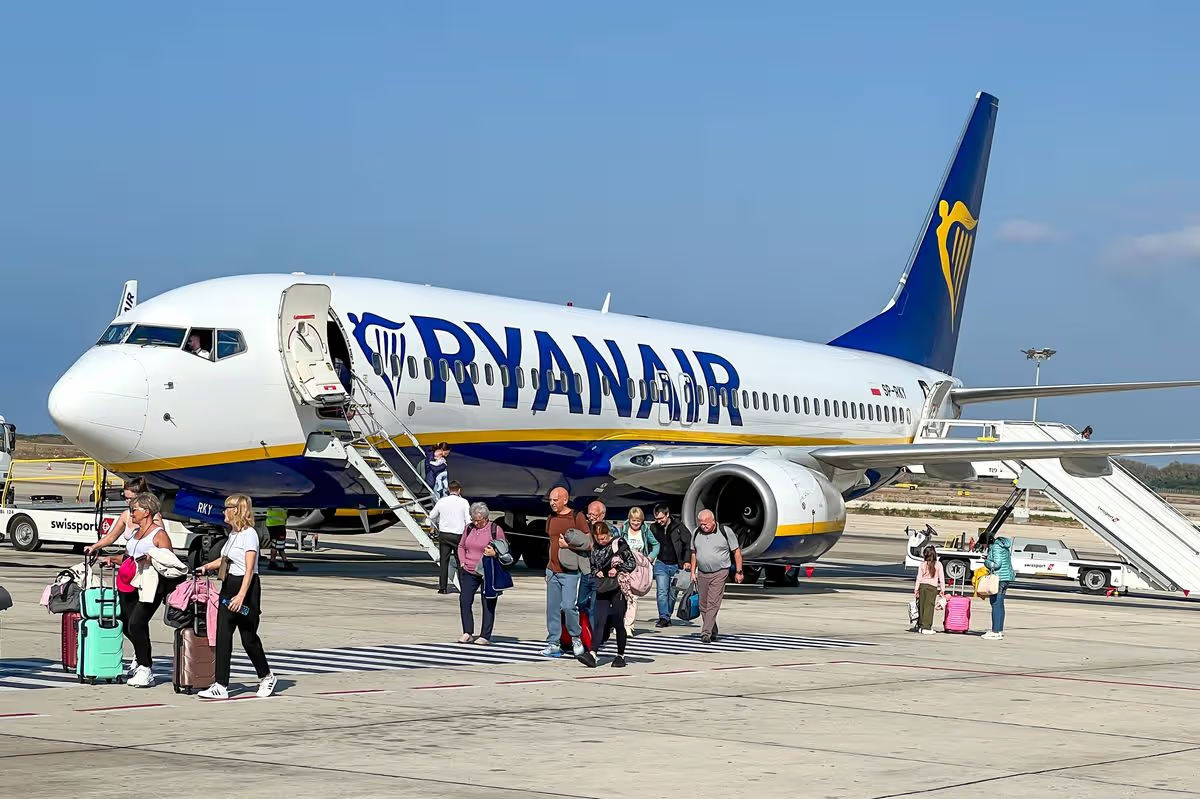There was choas on board a Wizz Air flight from Luton to Tel Aviv when a passenger started messaging someone else on board having changed their WiFi name to ‘terrorist’
Fighter jets were forced to to intercept a flight from the UK after being alerted that a passenger on board changed their WiFi name.
The planes arrived after a person reported ‘threatening messages’ were being sent to people on the Wizz Air flight from Luton, which was due to land at Ben-Gurion airport in Tel Aviv, Israel. The ‘security incident’ unfolded when crew notified security officials in Israel of a potential threat.
Authorities believe a traveller changed their WiFi account name to ‘terrorist’ and started directly messaging fellow passengers. They raised the alarm and the fighter jets were given the order to circle the skies before the plane eventually landed safely in Israel.
READ MORE: Bermuda triangle of the sky where satellites mysteriously die in growing weak spot in earth’s magnetic fieldREAD MORE: Boeing 737 declares mid-air emergency after ‘serious passenger interference’
The Airports Authority said: “Due to suspicion of suspicious behaviour on the plane, security forces acted according to the procedures for such a case. The incident ended. The plane landed and it was found that there was no actual incident.”
N12 News reports that this isn’t the first time those in charge at the airport have been forced to act. Three years ago, during a flight of the Turkish airline Anadolu Jet, passengers were airdropped pictures and videos of planes crashing on their mobile phones.
There is no blame on the airline, but analysis of the latest data from the Authority shows that Wizz Air had the highest number of complaints per million passengers flown, beating Ryanair to the bottom spot. In fact, the Hungarian airline romped home with the prize.
It received 10,548 customer complaints from mid-2024 to March 2025, or 918 complaints per one million passengers. That means for every customer who flew, just under 1,000 registered a complaint during that period.
In Wizz Air’s favour is the relatively low ‘complaint upheld’ rate during that time, at 47%. It paid out £1,482,183 as a consequence, or £651 per customer on average.
The airline said: “At Wizz Air, every minute matters and customers are at the heart of everything we do. Since 2024, we have made significant investments across every part of our operations, including our Customer First Compass initiative – a £12 billion framework launched in 2025 to ensure we deliver the best possible service for our customers.
“This investment is already delivering results. In 2025, our UK flight completion rate was 99.8% – one of the best in the entire industry, while our on-time performance also improved by 14.23% compared to 2024. As a result, in 2025 customer satisfaction ratio already increased by 7% point year-on-year.
“We recognise that disruption does occasionally occur, on many occasions due to factors outside of our control. We are focused on responding quickly and effectively when it does. Our automated Chatbot, Amelia AI, is available 24/7 to address most customers’ enquiries and needs.”
Meanwhile, British Airways had a far lower complaints rate (192/one million customers), but 83% were upheld. BA paid out £6,238,378 in total, or £837 per customer.
Ryanair’s complaints-per-million-customers rate was 188, with a low complaints upheld rate of 28% and an average award of £694.




